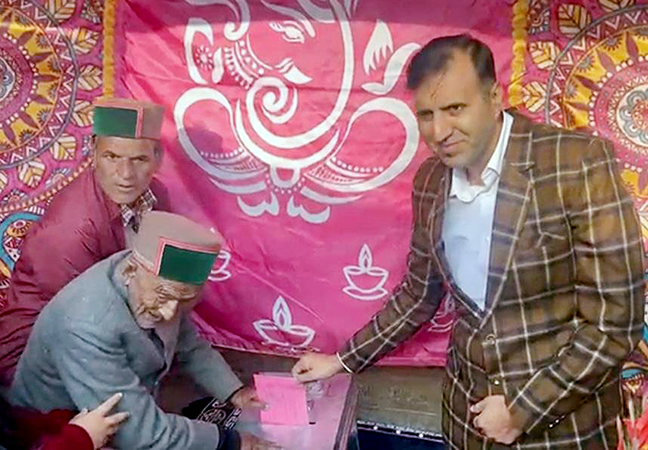Shyam Saran Negi passed away on Saturday morning, days after he cast his last vote in the 14th Himachal Assembly polls.
Prime Minister Narendra Modi offered his condolences to independent India’s first voter, Shyam Saran Negi who passed away on Saturday and said that Negi will inspire every citizen of the country, especially the youth to perform their duty of casting vote in the elections.
Negi passed away Saturday morning at his native place in Himachal Pradesh’s Kalpa, days after he cast his last vote in the 14th Assembly elections of the state. The Prime Minister recalled the country’s first voter and said that he performed his duty of casting a vote before his demise.
“When I was on my way to Himachal, I got the sad news of the passing away of the first voter of independent India, Shyam Saran Negi, who belonged to Kinnaur. The 106-year-old Negi had cast a vote for over 30 times in his entire life. Not only this, he had also cast his vote on November 2 in the Assembly elections through postal ballot. He performed his duty by casting a vote before his demise. This will always inspire every citizen especially the youth of our country. I bow my head in tribute to him with an emotional heart
Negi had been voting in general as well as state elections since 1951. According to official records, Negi had worked as a government school teacher in the village.
Negi used to encourage citizens to vote and choose candidates who have a good track record of public service. He used to say that voting is very important for the progress of the country and the state. Kalpa, (erstwhile “Chini” Village) the place of Negi’s birth, is nestled in the higher reaches of the Western Himalayas of Himachal Pradesh. The village is famous for its scenic beauty, luscious Kinnauri apples and dwellers who live a long life. The view of the gigantic Kinner Kailash range from Kalpa is simply breathtaking.
The centenarian was an epitome of perseverance despite his failing health, aching knees and lack of hearing. He preferred walking on his own, albeit with a stick and a smile on his face which belied decades of perseverance and hardships. If any curious onlooker wanted to strike a conversation with him, he would be a bit hesitant to talk initially. However, if he found the person concerned interesting enough, he came into his own with a twinkle in his eyes, pulling out anecdotes, one after another from his vast repertoire.
The secret of his longevity was pretty simple. Eating food which consists of whole grains, organic vegetables from his farm and walking long distances daily, which was a must for him.
Negi used to vividly remember how he became India’s first voter. According to him, “India’s first election was held in February 1952, but the voting for tribal areas in Himachal Pradesh were held 5 months in advance in October 1951. As heavy snowfall renders these parts inaccessible during harsh winter months, the elections were preponed in Kinnaur.” He would also recall that he came to vote very early on election day as he had to go for election duty being a government employee. Only later did he come to know that he was India’s first citizen to cast his franchise.
The whole Kalpa village knew Negi very well. The people living here and the surrounding villages respected him very much and lovingly called him “Masterji”. Masterji used to say, “Education for the girl child and cleanliness have been two areas where Kalpa has seen enormous progress in the last few years. In days of the yore, girls were not encouraged to go to school as they were expected to look after household chores. Not anymore.”
Public toilets and waste bins have come up in the interiors of the village which have created a sense of cleanliness among the villagers too.

